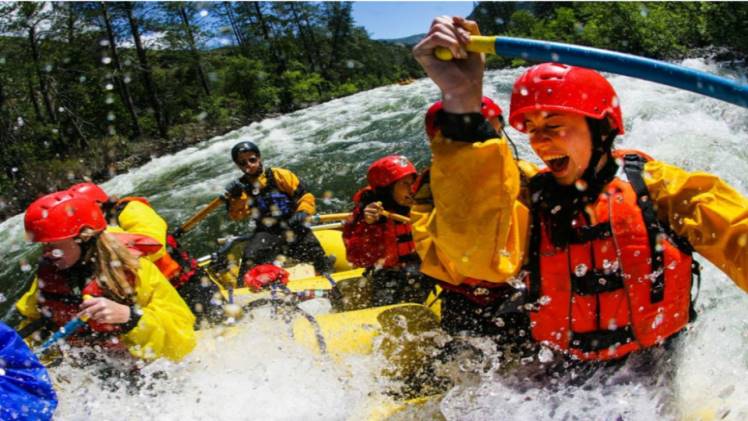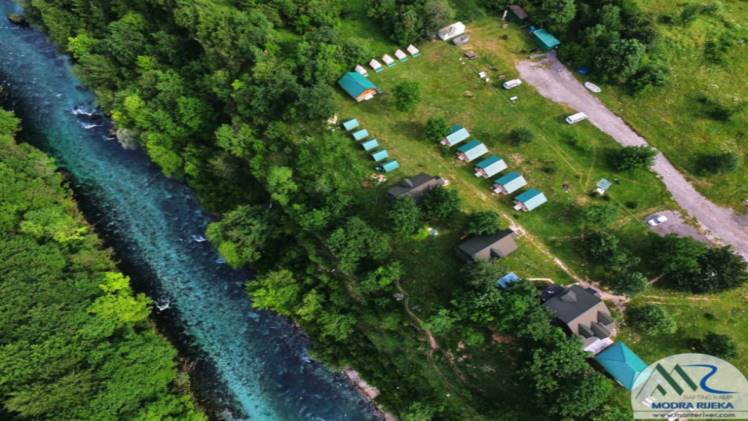Known for its beautiful mountains, pristine beaches, and scenic canyons, Montenegro is an ideal destination for adventure seekers. One exciting way to experience the country’s stunning landscape is by whitewater rafting its rushing rivers.
For beginners new to the sport, rafting Montenegro’s rapids is an unforgettable adventure. This guide covers everything you need to know to plan your first whitewater rafting trip in Montenegro.
What is Whitewater Rafting?
First of all, let’s understand what is whitewater rafting.
Whitewater rafting is a recreational outdoor activity using an inflatable raft to navigate rough waters and rapids down a river. Rafting provides an adrenaline rush combined with sights of unspoiled nature.
Guided trips are led by experienced instructors who steer through rapids while passengers paddle and follow commands. Montenegro’s mountain rivers offer both gentle floats through calmer sections and exhilarating rides through churning Class III-IV rapids. From heart-pounding plunges to peaceful scenery, rafting showcases Montenegro’s wilderness.
Why Rafting in Montenegro?
With its surging rivers fed by snowmelt and rainfall, this Balkan country provides premier rafting in Europe. The country boasts multiple craftable rivers like the Tara, Moraca, and Lim. National parks like Durmitor, Biogradska Gora, and Lovcen provide stunning backdrops.

The best time for rafting in Montenegro is spring to early summer when water levels peak. Average high temperatures of 71°F to 79°F during these months create pleasant rafting conditions. Daily guided tours for Modra Rijeka rafting camp operate out of cities like Podgorica, Nikšić, and Kolašin, providing easy access to world-class rafting.
Whether a beginner or experienced rafter, Montenegro promises an amazing whitewater experience.
Tara River Canyon
The Tara River Canyon is the most popular rafting destination in Montenegro. Carved from limestone over millions of years, the canyon measures over 1,300 feet deep in areas. The river hosts Class III-IV rapids fed by cascades plummeting from canyon walls.
Tara River tours launch from Šćepan Polje near the Bosnian border. The 12-mile journey downstream showcases the canyon’s dramatic cliffs and passes through the historic UNESCO-protected Durmitor National Park. With postcard-perfect scenery and adrenaline-pumping rapids, rafting the Tara River canyon is a must for any visitor.
River Grading System
Before booking any rafting trip, it helps to understand the river grading system. Rivers are classified from Class I to Class VI based on the difficulty and intensity of rapids, with higher classes indicating more extreme conditions:
Class I: Moving water with small ripples, no obstacles
Class II: Some choppy sections with waves up to 3 feet, clear passages
Class III: Numerous high waves up to 4 feet, narrow manoeuvres needed
Class IV: Powerful rapids, large boulders, precise manoeuvring
Class V: Nearly unnavigable water, high risk to swimmers
Class VI: Extreme, dangerous conditions
In Montenegro, popular beginner routes are Class II-III while more advanced options range up to Class IV. Knowing the river grade choose a trip suited to your skill level and comfort.
Key Terms to Know
Here are some key rafting terms to learn before your trip:
- Rapids – Sections of rough, fast-moving water with rocks, waves, and eddies.
- Eddy – Calmer section out of the main current where rafts can rest.
- Punching – Plowing directly into an upcoming wave at full speed.
- High-siding – Raising the side of the raft before big waves to avoid flipping.
- Portage – Carrying the raft around sections too dangerous to navigate.
What to Wear and Bring
Having the proper rafting gear and clothing enhances comfort, safety, and enjoyment on the river:
- Swimsuit – Provides freedom of movement and dries quickly if you get wet.
- Water shoes – Protect feet from sharp rocks while allowing grip on the raft.
- Splash jacket – Retains body heat and buoyancy if swimming rapids.
- Helmet – Protects your head by cushioning blows from rocks or paddles.
- Dry bag – Keeps valuables like phones and wallets dry inside the raft.
- Sunglasses – Shield eyes from the glare of the water surface.
- Waterproof sunscreen – Prevents painful burns from intense reflection.
- Towel and dry clothes – For changing after rafting before heading home.
Safety Tips
While professionally guided rafting tours provide skilled leadership, some tips will help you stay safe on the water as a beginner.
Follow all instructions from your guide and paddle in unison with others. Keep your body low and centred when approaching big rapids. Hold on tight to the raft ropes when riding through rough patches. Avoid sitting on the very front or back edges of the raft for stability. If you fall out, float on your back and keep your feet pointed downstream. Do not try to stand up while in deep rapids to avoid foot entrapment. Never dive out of the raft and always wear your lifejacket. Stay hydrated and apply sunscreen even on cloudy days.
How to Plan a Rafting Trip
The best way to book a tour is through local rafting outfitters like Rafting Camp Modra Rijeka, Wild Montenegro, or X-Adventure Montenegro. They offer a range of options from half-day beginner trips to multi-day expeditions. When choosing an excursion, consider your skill level, group size, dates, and any special requests.

Private tours for just your group are more costly but ensure personalized service. Booking in advance is recommended as peak season trips fill up quickly. With a reputable outfitter, scenic views, and Class II-IV rapids, rafting Montenegro’s rivers promises excitement and lifelong memories.
For beginners seeking an adventurous introduction to whitewater rafting, Montenegro provides breathtaking scenery and just the right amount of adrenaline-pumping action. Its majestic canyons, sweeping parks, and cascading rapids make rafting here a one-of-a-kind experience.
